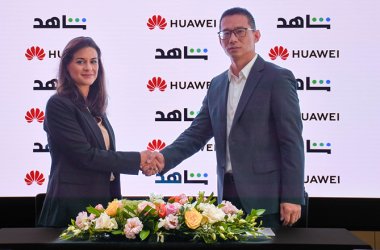 The U.S. Department of State should investigate Huawei Technologies’ reported sale of mobile phone tracking equipment to an Iranian mobile operator and consider sanctions against the Chinese company, six U.S. lawmakers said.
The U.S. Department of State should investigate Huawei Technologies’ reported sale of mobile phone tracking equipment to an Iranian mobile operator and consider sanctions against the Chinese company, six U.S. lawmakers said.
If news reports on Huawei’s sales of tracking equipment to Iranian telecom carriers are true, the company should be subject to sanctions prohibiting the U.S. government from entering into or renewing a contract with Huawei, said the lawmakers in a Dec. 22 letter to the State Department.
The six lawmakers, five Republicans and one Democrat, called on the State Department to “expeditiously investigate whether Huawei and other telecommunications firms have violated [the law] by providing sensitive technology to the Iranian government that is or has been used to restrict the speech of the Iranian people and the free flow of unbiased information in Iran.”
Among the lawmakers signing the letter were Representative Sue Myrick, a North Carolina Republican, and Senator Jon Ky, an Arizona Republican. The Dec. 22 letter is the latest in a series of letters expressing concern about Huawei practices that Myrick and Kyl have organized in the past year, a Myrick spokeswoman said.
An October report in the Wall Street Journal said recent contracts between Huawei and the two largest mobile carriers in Iran will allow police to track the locations of mobile phone users.
“In this role, Huawei appears to facilitate the Iranian government’s restriction of the speech of the Iranian people and the free flow of unbiased information in Iran,” the lawmakers’ letter said. “Such services may be a critical tool for the Iranian government in disrupting and restricting the speech of its people.”
The Comprehensive Iran Sanctions Accountability and Divestment Act, passed by the U.S. Congress in 2010, imposes trade sanctions on Iran, and prohibits government contracts with companies that export sensitive telecommunications technology to the country.
A Huawei spokeswoman said she wasn’t aware that the company had any current contracts with the U.S. government. In October, the U.S. Department of Commerce blocked Huawei from participating in a project to build a nationwide mobile network for police and firefighters.
Huawei in December said it was scaling back business in Iran because of an “increasingly complex situation” there.
Huawei, in a statement, disputed news reports about its sales to Iranian mobile carriers.
“One of the fundamental principles governing Huawei’s global operations is to be in strict compliance with all relevant international and local laws and regulations, including applicable U.S. laws and regulations,” the company said. “Unfortunately, a few members of Congress continue to cite inaccurate media reports that include groundless allegations and inaccuracies.”





